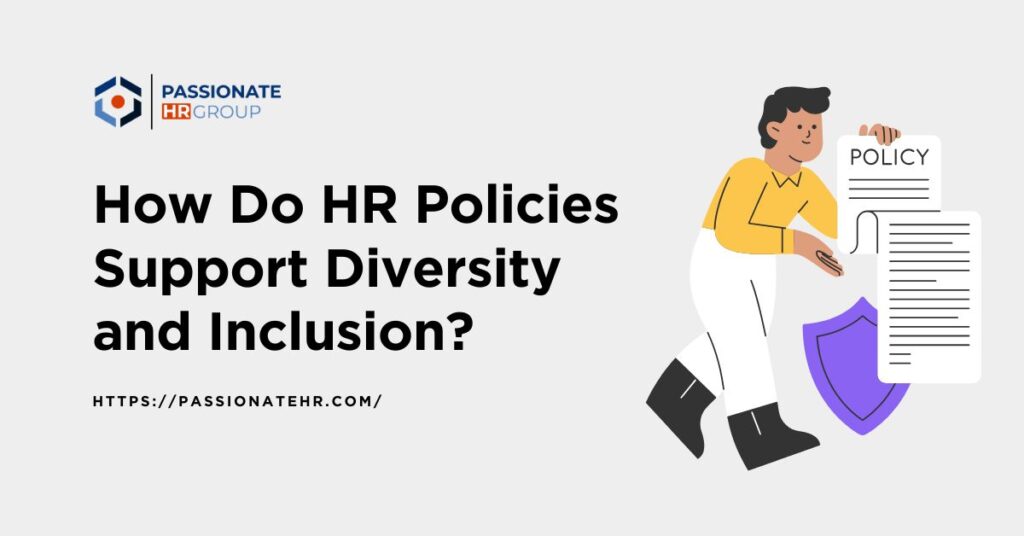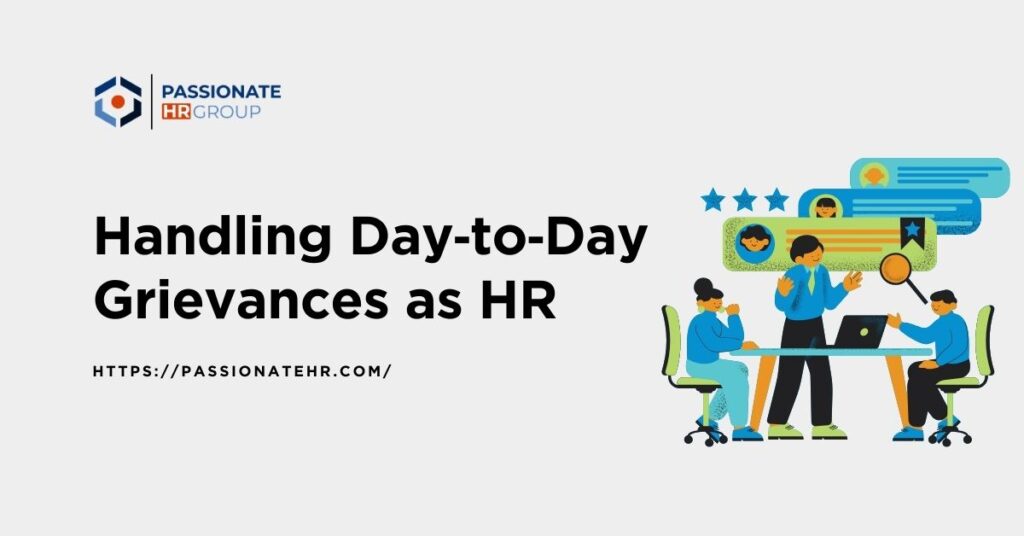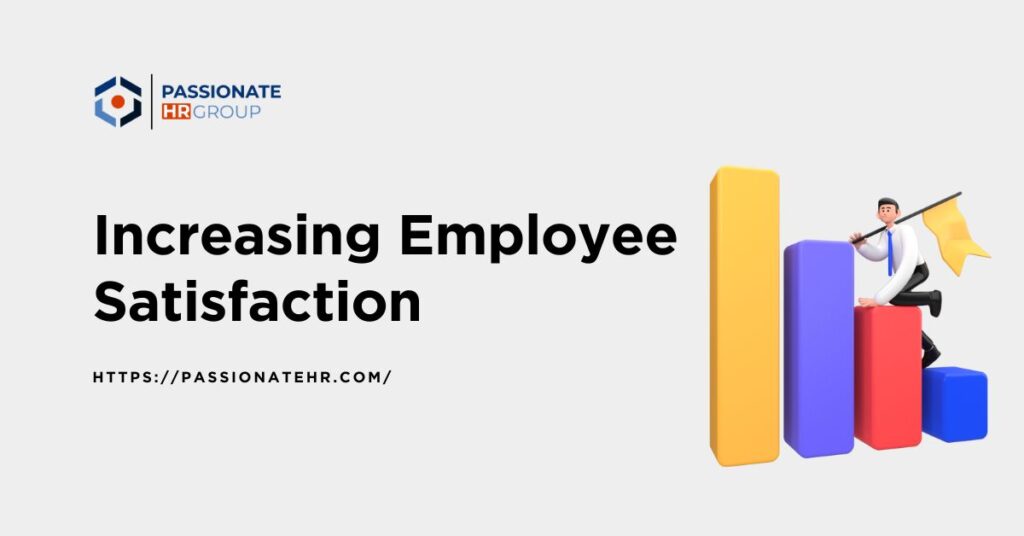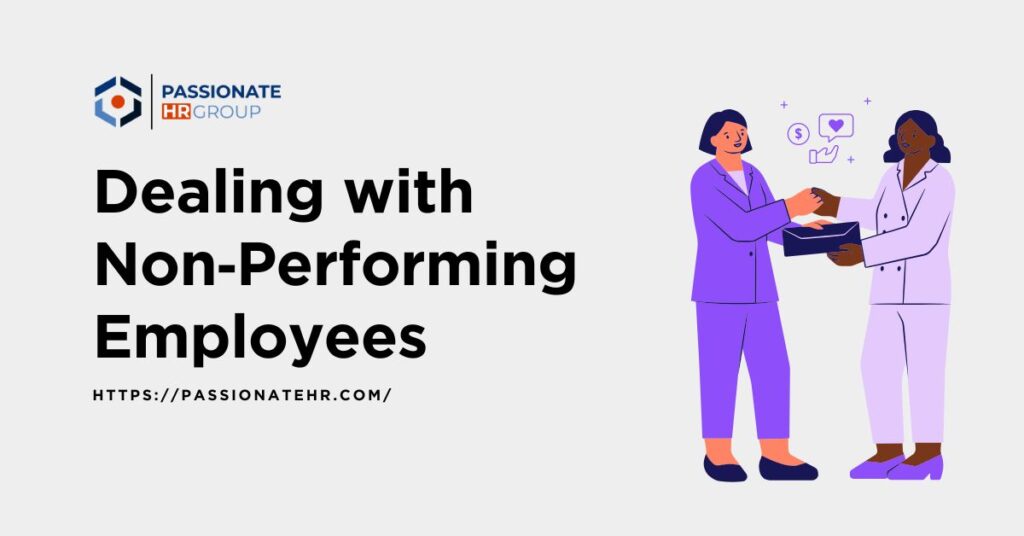Strong teams welcome different voices and make space for each person to do great work. Diversity brings many ways of thinking.
Inclusion turns those ideas into action. Clear, written rules guide daily behavior, so respect is not left to chance.
When people know what is expected, how to hire, how to promote, how to raise concerns they feel safer and more confident.
That is why HR Policies play such an important role: they set shared standards that everyone can see, follow, and trust.
What Diversity and Inclusion Mean in Simple Terms
Diversity = who’s in the room
Diversity means people with different backgrounds working together. This includes differences in culture, age, gender, language, abilities, and life experience.
A diverse group can spot problems faster and suggest fresh solutions. When teams compare ideas from many angles, they often make better choices and create better products and services making diversity a key part of the Best HR Policies for any organisation.
Inclusion = how people are treated
Inclusion is the day-to-day feeling that you belong. It shows up in small moments getting credit for your work, being heard in meetings, and having fair chances to grow.
Inclusion is not a one-time event. It is a set of habits, like listening, using respectful language, and sharing information openly. When inclusion is strong, people contribute more because they feel safe to speak up.
Setting Fair Rules From Day One
Bias-free job ads and interviews
Hiring is the first test of fairness. Job ads should focus on real skills, not long wish lists that scare away good candidates.
Use plain language and avoid terms that hint at one type of person. Standard interview questions help each candidate face the same test. Scorecards keep feedback clear and consistent. A mix of interviewers helps limit bias from any one person. These steps build trust from the start and widen your talent pool.
Structured onboarding that welcomes everyone
A welcoming start can shape a whole career. Share your code of conduct on day one, along with guidance on respectful behavior and how to get help.
Assign a buddy so new hires have a friendly contact. Set check-ins at 30, 60, and 90 days to ask what is going well and what needs support.
Short, steady check-ins show new hires that their voice matters. This approach speeds up learning and helps people feel part of the team.
Training That Builds Awareness and Skills
Practical D&I training for managers and teams
Training should be short, clear, and connected to real work. Teach managers how to give fair feedback, choose words carefully, and make decisions based on evidence.
Help all staff learn to recognize bias and slow down before making quick judgments. Repeat the training on a regular schedule. One session will fade; refreshers keep skills alive.
Supportive action skills and respectful communication
People want to help, but they need simple steps. Bystander skills show how to act if someone is being interrupted or treated poorly.
You can pause the meeting, invite the quieter person back into the talk, and check in privately afterward.
Respectful communication also means avoiding jokes that put others down and using plain words instead of jargon. When the language is clear and kind, teamwork improves.
Pay, Promotions, and Performance Kept Fair
Clear pay bands and regular pay reviews
Fair pay is a major sign of respect. Create pay bands for each role and level. Share how pay is set skills, outcomes, and market data so the logic makes sense.
Review pay on a regular schedule to catch gaps. If a gap appears, fix it promptly. This shows you value people for their work and helps you keep great talent.
Promotion criteria that are open and consistent
People should know what growth looks like. Write down what each level expects—technical skill, teamwork, mentoring, and impact.
Use more than one reviewer, so decisions do not depend on a single opinion. Discuss growth paths during regular check-ins. When the path is visible, employees can plan their next steps with confidence.

Safe Ways to Speak Up
Simple reporting channels and anti-retaliation rules
No system is perfect, so staff must have safe ways to raise concerns. Offer more than one channel: a manager, an HR contact, and an ethics inbox.
Allow anonymous reports for sensitive cases. Put strict anti-retaliation rules in writing, and explain what happens if someone breaks them.
Share the expected timeline for follow-up. When people trust the process, they speak up sooner, and small problems stay small.
Quick, fair investigations
When a report comes in, act quickly and fairly. Keep the facts private and share only with those who need to know.
Speak to everyone involved, document steps, and apply the same standards to all. If a rule was broken, address it with clear consequences.
If it was a misunderstanding, help repair trust. A consistent, steady process shows that dignity matters for everyone.
Flexible Work and Inclusive Benefits
Flex hours, remote options, and accommodations
Life can be busy. Flexibility helps many people contribute at their best. Where roles allow, offer flexible hours or remote options.
Make it simple to request disability or religious accommodations. Quick, respectful approvals help people perform without extra stress. Flexibility is not a favor; it is a practical way to help more people succeed.
Benefits that support many life stages
Benefits should reflect real needs. Offer parental leave that covers all parents. Include mental health support and counseling options.
Make time-off rules clear, including time for cultural or religious events. Share how to use each benefit in plain steps. When benefits are easy to understand, people can focus on their work and their lives with less worry.
Everyday Inclusion in Teams
Inclusive meetings and communication
Meetings shape how people feel. Share agendas in advance so everyone can prepare. In group talks, invite quieter voices to speak and pause to let ideas land.
In virtual meetings, use hand-raise tools and rotate who leads. Keep notes and decisions in a shared space so those who miss the meeting can catch up.
Use readable fonts, good contrast in slides, and captions in videos whenever possible. These details make meetings smoother for everyone.
Celebrations, ERGs, and calendar awareness
Culture grows through daily habits and shared moments. Recognize a wide range of holidays and milestones.
Support Employee Resource Groups (ERGs) with a simple charter, a small budget, and regular check-ins with leadership.
Keep a shared calendar of observances to avoid conflicts and show respect for different traditions. When people see their lives reflected at work, they feel welcome.
Data, Audits, and Accountability
Track, report, and improve
What you track, you can improve. Review hiring, promotions, pay, and turnover by role and level. Look for patterns, not blame.
Share high-level trends with managers and explain next steps. Celebrate progress, and be open about gaps that still need work.
Regular reviews keep momentum steady and help you use resources where they matter most.
Set goals and review progress
Set a few clear goals that fit your size and stage. For example, increase representation at specific levels, close pay gaps beyond a set point, or raise completion rates for training.
Review progress monthly or quarterly. If a goal is too hard or too easy, adjust it. Goals should guide action, not sit in a slide deck.
Real-World Examples and Ideas You Can Use
Hiring, growth, and culture ideas
Write job ads in plain language, focusing on measurable skills and results. Share interview questions and agreed scoring guides with panels in advance.
Plan a clear two-week onboarding with simple tasks and a buddy for regular check-ins. Show growth paths with level guides, use two-stars-and-a-wish for quick, specific feedback, and recognise teamwork in weekly updates.
For daily inclusion, set meeting rules, rotate note-taking, and summarise key points after tough discussions to keep trust and clarity.
What small companies can start today
Small teams can drive big change with simple steps. Create a one-page code of conduct, set basic pay ranges, and use a short interview scorecard for fairness.
Track one key metric each month, like candidate diversity at phone screens. Hold quarterly check-ins to gather feedback, share a celebrations calendar, and teach quick bystander actions to address issues respectfully. These low-cost steps have a high impact.
Data, Audits, and Accountability (deepening the practice)
Numbers matter, but so do voices. Combine data with listening sessions to spot patterns and plan changes.
Keep promises small and steady to show progress. Review pay, promotions, and exits each year to catch issues early, explain fixes clearly, and use “why” often to guide better decisions.
Where Written Rules Make the Difference
Clear guidance removes guesswork. People know how to behave, managers know how to respond, and leaders have a map to follow.
Written rules help in hard moments like a complaint, a conflict, or a tough performance talk because they provide a fair process.
They also help in bright moments like a promotion or a raise because they keep standards steady. This is where Human resource policies connect the dots across hiring, pay, growth, reporting, and daily habits. With steady practice, they turn good intentions into results.
How Technology Can Help Without Taking Over
Tools can support fairness without replacing judgment. Writing assistants can flag words in job ads that push some people away.
Interview platforms can keep questions and scorecards consistent. Pay tools can spot gaps early.
Accessibility features like captions or keyboard shortcuts make work smoother for many people. Use tools to support your standards, and keep humans in the loop for care and context.
Leadership’s Role in Lasting Inclusion
Leaders set the tone. When they give credit, listen, and handle mistakes with honesty, culture shifts.
Share quick D&I updates in meetings, each tied to one action like training, a clear goal, or a support channel. Keep messages simple and repeat them to build trust.
Show learning in action: if a leader uses the wrong term, correct it, apologise, and move on. This makes it safe for everyone to learn and grow.
Bringing It All Together in Daily Work
Inclusion grows through clear standards and daily practice. Standards guide hiring, pay, growth, and conduct, while habits shape daily moments like meetings and feedback.
When both align, people feel valued and able to contribute. Many teams partner with Passionate HR to create playbooks, train managers, and set fair processes.
The goal whether in-house or with a partner is simple, reliable steps everyone understands.
Conclusion
Diversity brings fresh ideas, and inclusion turns those ideas into real progress. Clear rules for hiring, pay, growth, conduct, and reporting make fairness a daily habit.
When leaders model respect and teams practice it in meetings and feedback, people feel safe, valued, and ready to do their best work.
If you’d like to support creating a practical roadmap that fits your goals, reach out to Passionate HR Group. We’re here to help you move forward with confidence.






